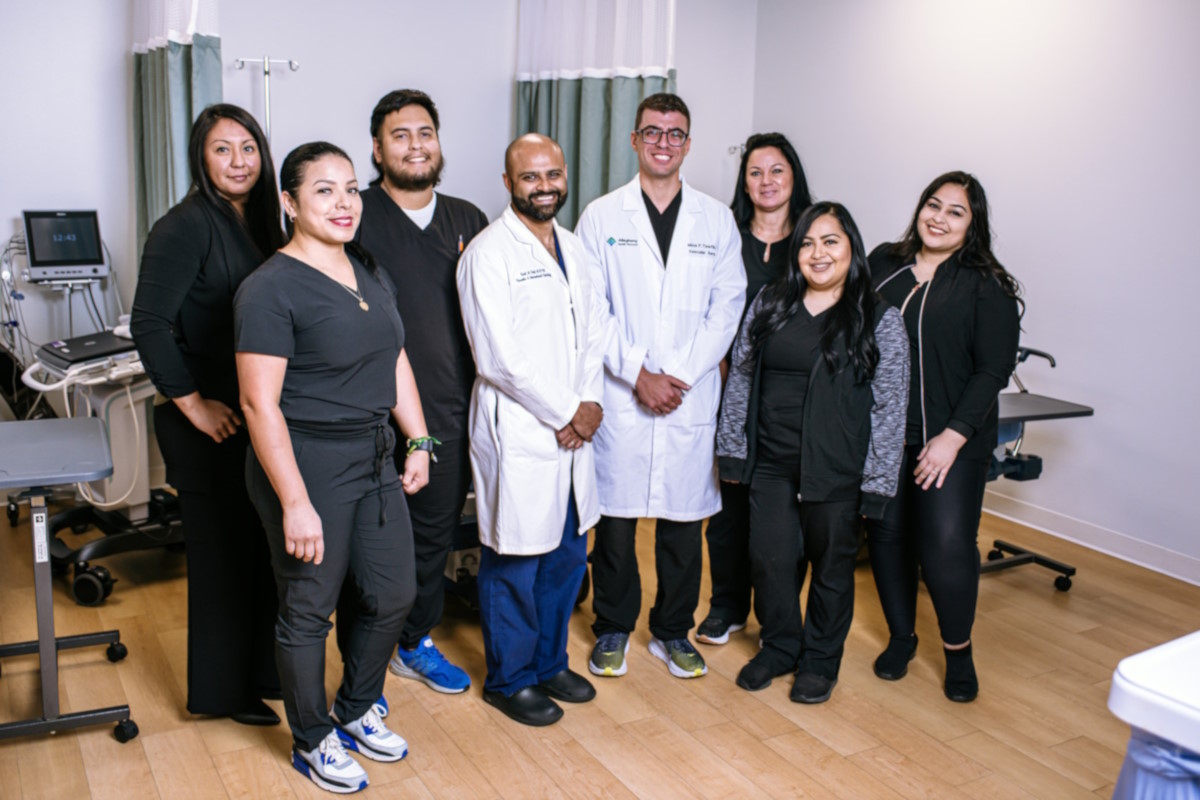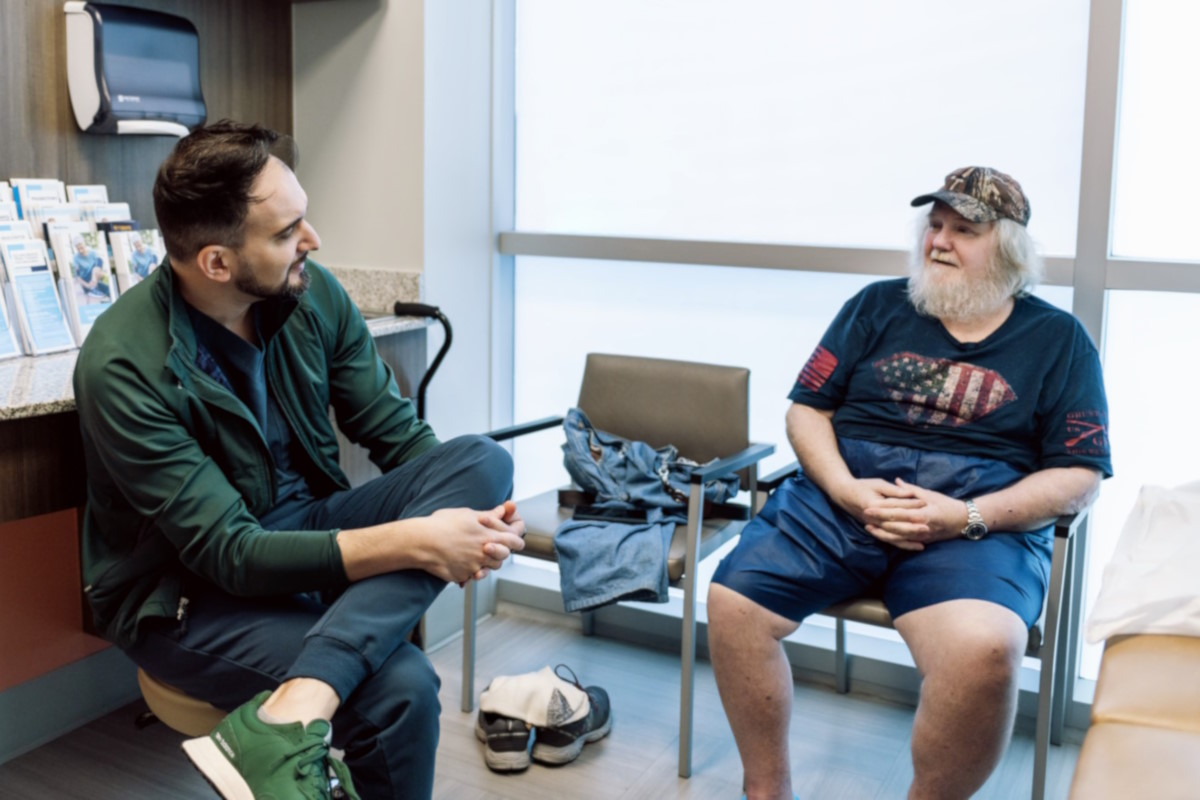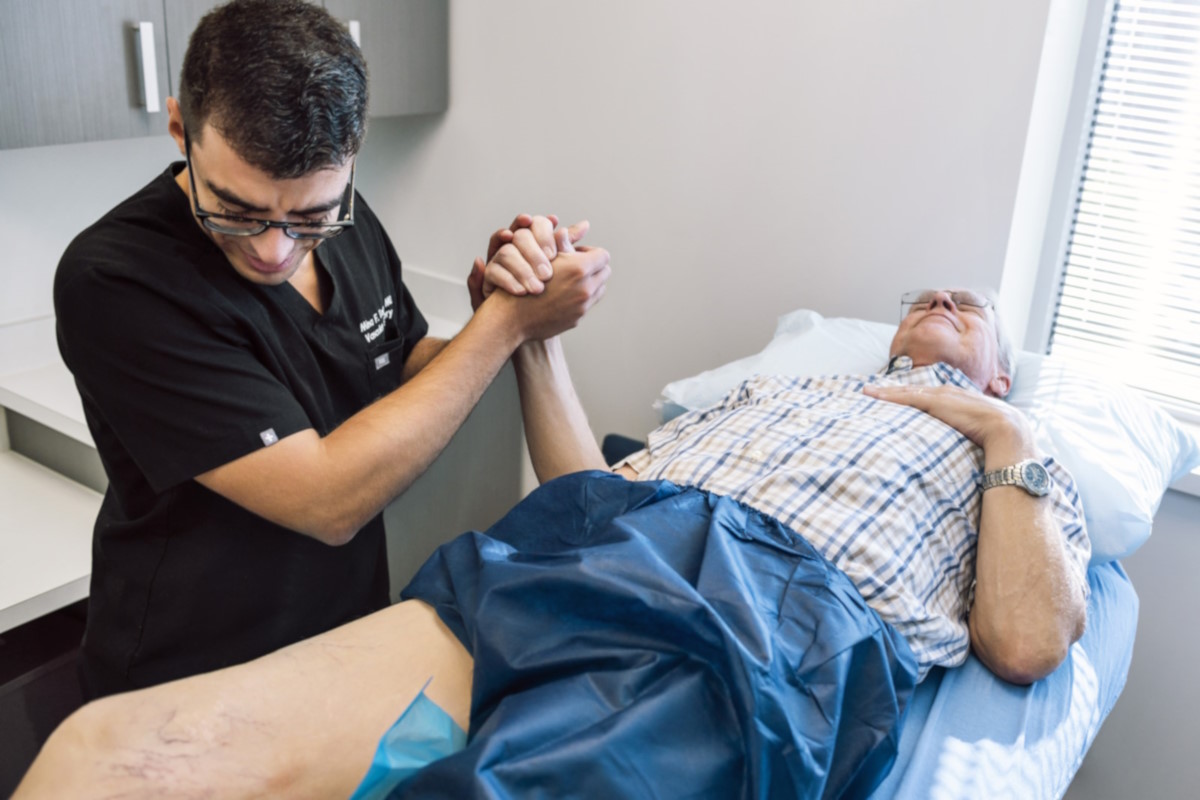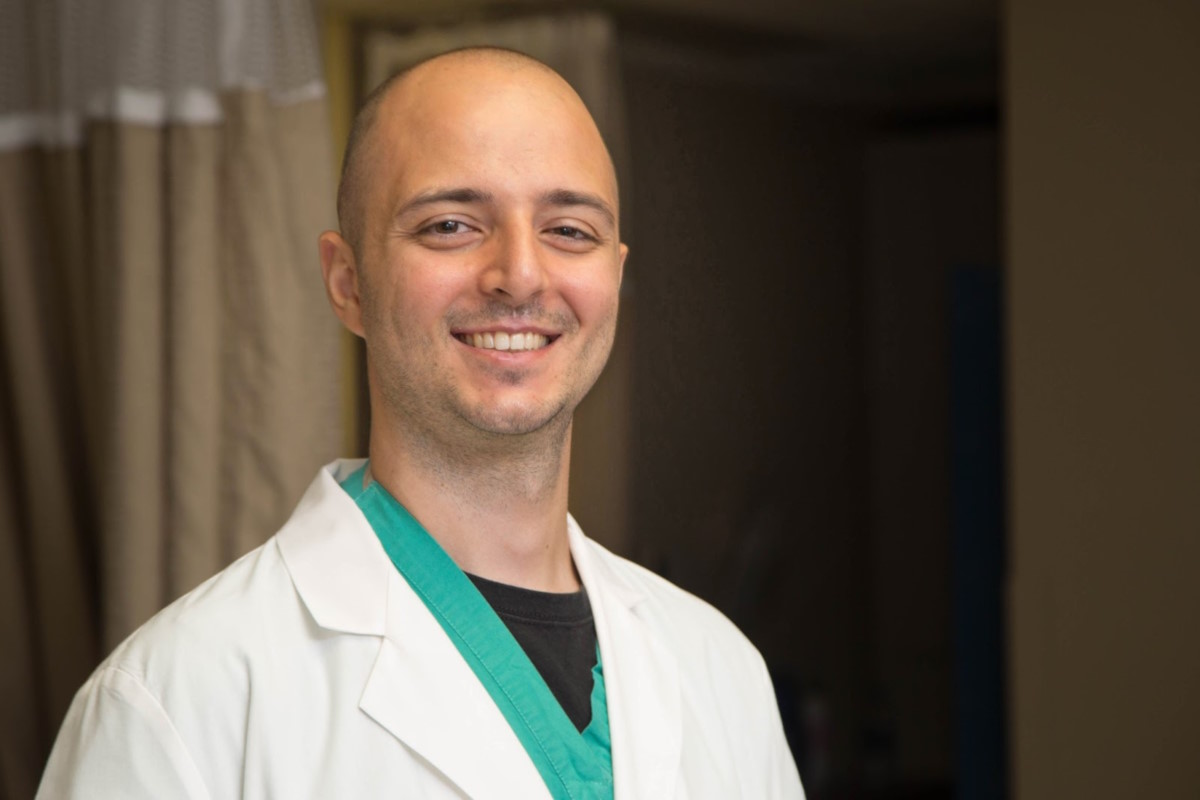The Training and Experience That Make a Great Vascular Surgeon
Author: StrideCare Internal Team

Your primary doctor can resolve many conditions that drag you down in your daily life. This can include everything from the common cold to arthritis and hypertension. However, there are plenty of times when it is appropriate for them to defer to a specialist for certain conditions. This is especially true if you attempt to visit your regular doctor for leg pain and there is a genuine concern of vein disease. Perhaps your varicose veins are causing your legs to feel sluggish and heavy. Maybe you have been experiencing tingling, pulling, and prickling sensations in your legs and feet, or you struggle to walk because of extreme swelling. This is where a vascular surgeon can be helpful. Unlike your primary doctor, they have years of extensive training and education beyond traditional medical school. This highly specialized technical expertise and in-depth knowledge of your body’s vast network of veins and arteries make them uniquely qualified to take on your case.
In other words, this is what they do every day, and it is their job to uncover and treat the root cause of your condition rather than focusing on symptoms alone. While you may be nervous about your vascular condition, you can take comfort in knowing you have a specialist in your corner. Understanding their rigorous path to getting here can give you renewed confidence in their expertise and the care you will receive.
Are you concerned that a more serious vein issue is the cause for your leg symptoms? Schedule a consultation with a StrideCare vascular surgeon today to help you reclaim healthy legs and a happier, more confident life.
From Medical School to Mastery: The Educational Journey of a Vascular Surgeon
One in every three adults over 45 develops some form of vein disease. Spider veins and varicose veins are typically the first signs that your veins are no longer working as they once did. If left unchecked, minor symptoms and cosmetic concerns can lead to a traffic jam in your circulatory system where blood flow and oxygen struggle to move freely throughout your body. Suddenly, you will struggle to walk, exercise, or even perform simple daily tasks such as playing with the kids, gardening, and more. Before you know it, you could develop vascular conditions such as Chronic Venous Insufficiency, Peripheral Arterial Disease, Restless Leg Syndrome, blood clots, and leg and foot ulcers.
Vascular surgeons have access to ultrasound imaging machines that can uncover precisely why you are experiencing pain in your lower extremities and help determine the best treatment option to improve blood flow. Early detection is vital in treating any vein disease, allowing vascular surgeons to tailor treatment plans to your unique needs.

As for how they got to where they are today, it certainly was not a fast-track process. To become a great vascular surgeon, they must complete an extensive education that includes but is not limited to a bachelor’s degree, medical school, a general surgery residency, and a dedicated vascular surgery fellowship.
Below is a breakdown of each educational step to better understand what is involved.
Bachelor’s Degree
Like any other doctor, a vascular surgeon’s path to success starts with earning a bachelor’s degree. This is generally a four-year program in which students take general education courses (math, science, English, etc.) and specialized courses related to their chosen major. For instance, they may pursue a Bachelor of Science in math or complete prerequisite courses in biology, general and organic chemistry, biochemistry, psychology, etc.
During this time, someone interested in medicine may volunteer at nearby hospitals, take on leadership roles in college clubs and organizations, or collaborate on various medical research projects. Along the way, they are researching and applying to medical schools and preparing for the Medical College Admission Test (MCAT).
Medical School
After completing their undergraduate degree, aspiring vascular surgeons move on to medical school. Typically, this lasts roughly four years and includes classroom and lab-based learning of foundational medical knowledge, anatomy, and disease processes. From there, they dive into clinical rotations at hospitals and clinics. This rotation allows them to gain hands-on experience in different medical specialties. This includes everything from family and emergency medicine to surgery, internal medicine, psychiatry, gynecology, and neurology.
Medical students can also choose electives that align more with their intended path, including vascular surgery, to gain a deeper understanding before applying for residency.
Residency and Fellowship
By this point, prospective doctors and vascular surgeons have invested roughly eight years into their educational training. The next steps are residency and fellowship training. This is where you start to see a stark shift in the additional training vascular surgeons require. After all, prospective vascular surgeons must treat a broad spectrum of complex and life-threatening conditions effectively. This can involve minimally invasive treatments involving veins and arteries; it can also involve intricate surgeries.

Residency and vascular surgery fellowships generally add seven to eight years of training beyond medical school. For some, it may be longer. Unlike medical school, residencies focus on a specific field or interest and allow doctors to develop their skills. To do this, they will work in hospitals, clinics, and other medical settings—all the while treating real patients and being exposed to a variety of minor and complex cases. The goal is to:
- Gain hands-on experience
- Take on more responsibility and make independent medical decisions
- Work closely with nurses, therapists, and other specialists
- Prepare for board certification (necessary to become certified as a vascular surgeon)
Fellowship training is an additional specialization option that is generally automatic for anyone who aspires to be a great vascular surgeon. Here, they are exposed to subspecialty expertise, research and academic development, advanced procedural training, and rare cases.
For example, StrideCare co-founder Dr. Danny Chan earned his medical degree from Saint Louis University School of Medicine and his MBA from the University of Texas at Dallas. He completed a general surgery internship at New York Medical College in Valhalla, New York, at Westchester Medical Center. Dr. Chan concluded his vascular training in New York City with a radiology residency at Lenox Hill Hospital on Manhattan’s Upper East Side. He is fellowship-trained in vascular and interventional radiology from the Miami Cardiac and Vascular Institute.
Meanwhile, Dr. Terrell Singleton attended the University of Texas Medical Branch School of Medicine in Galveston. She stayed in Galveston for a five-year residency in general surgery. A two-year vascular surgical fellowship at Baylor College of Medicine in Houston followed.
Continuing Education and Certifications
Great vascular surgeons do not stop learning and giving their time to educate others. They also look for ways to be board-certified in multiple disciplines to expand their craft further. For instance, Dr. Abdul Rahim at StrideCare is board-certified by the American Board of Radiology in interventional and diagnostic radiology.
He is also a member of the Society of Interventional Radiology, has numerous published articles, and is a sought-after speaker at conferences and meetings.

You do not have to live with varicose veins forever. Schedule a consultation with a StrideCare vascular surgeon today. Our collaborative approach ensures that you receive the care you need.
Achieving High Patient Satisfaction
Vein disease is a scary reality for patients who want their lives back and must now trust a vascular surgeon. Many times, the road to recovery will involve a minimally invasive approach. Other times, surgery may be the answer for complex cases. In either situation, achieving high patient satisfaction is at the heart of every vascular surgeon’s job. When looking for a vascular surgeon, it is important to check their reviews.
A Net Promoter Score (NPS) is used to measure patient experience in hospitals. The NPS is a scale where patients rate their likelihood to recommend a particular doctor or service to someone else. The higher a doctor’s NPS score is, the more they are generally viewed as an exceptional doctor who prides themselves on taking care of patients. NPS scores are used more for internal purposes by healthcare organizations versus being publicly shared. That said, patients can find patient satisfaction scores, reviews, and ratings from various sources. This includes:
- Physician review websites (Healthgrades, Zocdoc, RateMDs, etc.)
- Patient testimonials
- Hospital and clinic websites
- Google and social media reviews
- State medical boards
- Reviews and referrals from primary doctors
Featured in this video is a patient who suffered for over 10 years with iliac vein compression. She trusted the vascular experts at StrideCare to help her reclaim her life. Today, she is pain-free and living her best life with her family and children. Patients just like this one can often undergo a painless procedure and leave the same day feeling better than ever.
When our team performs advanced treatment procedures, many patients experience a high success rate with minimal discomfort and can return to enjoying their lives faster. This is evident in our positive NPS scores and patient reviews.
The bottom line is that vascular surgeons, including the ones on our team of experts at StrideCare, have the education, training, and expertise to handle many vascular and vein diseases. As someone dealing with a debilitating vein condition, these are the medical professionals you want in your corner. You and your doctor should discuss your vein issues and the next steps regarding medical treatments. More than likely, they will suggest various lifestyle changes and practical tips you can implement right now to improve your situation, including improving your diet and exercising. If those options do not work, treatments such as sclerotherapy, microfoam ablation, and radiofrequency ablation are available.
StrideCare Has the Vascular Surgeons You Need to Reclaim Your Life
Finding out that you have a vein issue can be scary, but it does not have to dominate your life forever. Vascular surgeons are referred to millions of patients each year because of their technical training and years of dedication to learning the intricacies of veins and arteries and how they impact people from all walks of life. StrideCare’s mission is to surround ourselves with the best in this field so that our patients are never short on options for reclaiming their lives.
StrideCare has long been a leader in multi-specialty care for treating lower-extremity vascular and podiatric conditions. That includes our ability to perform leading-edge procedures to treat artery and vein disease and symptoms that, while minor in their earliest stages, can eventually lead to more serious and life interrupting issues. The experts at StrideCare will recommend an individualized plan to help you get the best results.
Please contact us at 866-552-4866 or complete the appointment form to schedule a consultation. We are here to help, all while providing compassionate patient care.
This information is not a substitute for professional medical advice. Prior to starting any new treatment or questions regarding a medical condition, always seek the advice of your doctor or other qualified health provider.
StrideCare serves North Texas and South Texas communities, including The Woodlands, Lake Jackson, San Antonio, Stone Oak, Austin, Round Rock, Bastrop, Brushy Creek, Cedar Park, Converse, Georgetown, Hutto, Kyle, Leander, Marble Falls, New Braunfels, Pasadena, Pearland, Pflugerville, San Marcos, Schertz, Bay City, Universal City, Spring, Kingwood, Stafford, Conroe, Texas City, Cypress, League City, Bellaire, Dallas, Mesquite, Addison, Arlington, Plano, McKinney, Craig Ranch, Prosper, Flower Mound, Euless, Southlake, South Dallas, Sherman, Irving, Garland, Carrollton, Rowlett, Coppell, Forney, Rockwall, Houston, Sugar Land, Katy, Webster, Clear Lake, and more.
*Patient names and/or photos may be changed to protect patient confidentiality.


